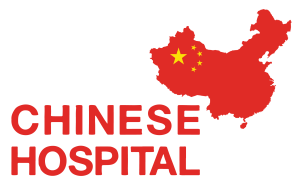Pancreatic cancer, often called the "king of cancers," remains one of the most challenging cancers to treat due to its late diagnosis and resistance to traditional therapies. However, recent innovations in CAR T cell therapy and precision oncology in China, especially at Shen Baiyong’s Pancreatic Cancer Innovation Studio at Ruijin Hospital, Shanghai, are transforming patient outcomes and offering new hope for patients worldwide.
Revolutionary Advances in Pancreatic Cancer Treatment in China
Led by Dr. Shen Baiyong, a pioneer in pancreatic cancer surgery and precision oncology, the team at Ruijin Hospital is integrating cutting-edge technologies like AI-driven multi-omics analysis, early screening models, minimally invasive robotic surgeries, and personalized CAR T cell therapies to tackle pancreatic cancer more effectively.
Dr. Shen’s recent research presented at the American Pancreatic Association Annual Meeting showcased the use of AI-assisted analysis of 1.22 million parameters, aiming to decode the molecular behavior of pancreatic cancer and design targeted treatments. This innovation is helping to predict drug resistance and optimize therapy selection for individual patients.
Early Detection and Precision Screening: Changing the Game
One of the major barriers to treating pancreatic cancer is late detection—over 80% of cases are diagnosed at an advanced stage. To combat this, Dr. Shen’s team developed:
✅ Early Screening Cohorts
✅ “Pancreatic Health” Mobile App → with 40,000+ users and 1,000+ high-risk patients identified
✅ Advanced biomarker kits → detect pancreatic cancer 3-6 months earlier than CA19-9
The goal is to increase early diagnosis rates from 20% to 50%, dramatically improving the chances of successful treatment.
Minimally Invasive Surgery & CAR T Cell Therapy: A New Era
Dr. Shen’s team leads the world in robotic pancreatic surgeries, with over 3,000 procedures performed, including 2,000+ malignant tumors. Their techniques minimize surgical trauma, preserve immune function, and accelerate recovery.
In parallel, China is now advancing CAR T cell therapy for pancreatic cancer, targeting novel markers such as Mesothelin and Claudin 18.2. Clinical trials are underway to evaluate Mesothelin-targeted CAR T cells for pancreatic adenocarcinoma, which may revolutionize treatment by offering high specificity and durability against this notoriously resilient cancer.
Transforming Outcomes Through Full-Cycle Management
The Ruijin Pancreatic Center’s model integrates:
Early screening
Precision diagnosis
AI-based therapy selection
Minimally invasive robotic surgery
CAR T cell therapy and immunotherapy trials
Postoperative rehabilitation
Long-term patient monitoring
This full-cycle, personalized approach is delivering better outcomes, including higher survival rates and improved quality of life for patients.
Case Study: A Story of Hope
Ms. Li, 56, diagnosed with early-stage pancreatic cancer, underwent Da Vinci robotic surgery at Ruijin Hospital. Post-op, she recovered within a week and continues under long-term monitoring with no recurrence after six months. Her story reflects the transformative potential of precision medicine and innovative surgical care in China.
Future of Pancreatic Cancer Treatment
With breakthroughs in:
AI-driven multi-omics
Early detection
CAR T cell therapy for solid tumors
Robotic surgery standardization
China is emerging as a global leader in precision oncology for pancreatic cancer. The collaboration between AI labs and cancer centers is paving the way for even more advanced, personalized therapies.
Explore Advanced Pancreatic Cancer Treatment Options in China
If you or your loved one is seeking cutting-edge treatment for pancreatic cancer, including CAR T cell therapy, precision surgery, and personalized immunotherapy, contact us today.
Email: info@chinamedtours.com
Our expert team is ready to help you explore the best options for treatment in China’s leading cancer centers.




